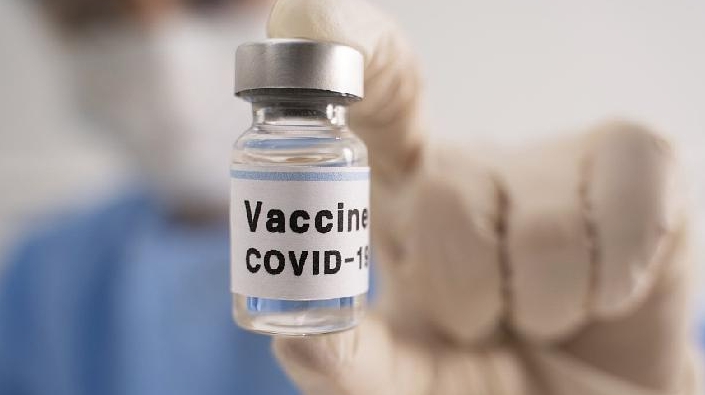By Dr Khor Swee Kheng / Nur Nabila bt Nasharuddin
On 27 November, Putrajaya made three important COVID-19 vaccine announcements: a purchase agreement for the Pfizer/BioNTech vaccine, payments to the COVAX Facility and the start of a clinical trial with a Chinese vaccine. This was followed by the 2 December announcement that the Pfizer/BioNTech vaccine was approved by the United Kingdom's Medicines & Healthcare Products Regulatory Agency (MHRA). What does all this mean for the average Malaysian?
Firstly, this means that Malaysia is making good progress in the global race for the vaccine. Putrajaya's strategy of hedging is working, i.e. by keeping all vaccine options open and continuing to negotiate with various producers. Results from clinical trials are still coming in and we may need several vaccine manufacturers to cover the stated aim of 70% of the population to attain the herd immunity threshold. It is important to note that this threshold is still being calculated by epidemiologists and could be higher than 70%.
Having multiple sources of the vaccine is good strategy. Having only one manufacturer as sole distributor for Malaysia's vaccine supply might expose us to price hikes and supply chain disruptions. As any decision on vaccines carries its own benefits and risks, the most viable strategy should aim to spread our risks rather than waiting for "one ultimate winner" to emerge.
Secondly, this means that much attention will now fall onto our National Pharmaceutical Regulatory Agency (NPRA). The NPRA is responsible for the approval of new medicines and vaccines in Malaysia. While they may occasionally rely on reference agencies like the UK MHRA, the United States' Food & Drug Administration or the European Medicines Agency, the NPRA is a highly competent agency staffed by highly trained professionals.
Their independence will be crucial in determining the safety and efficacy of the vaccine. The reassurances by the Prime Minister, Minister of Science, Technology and Innovation and the Director-General of Health that the NPRA will be the final decision-maker will help inspire vaccine confidence in Malaysia.
We welcome the DG of Health's statements that Malaysia will not be rushed into approving the vaccine. Malaysia will observe the UK's program for several months. This is consistent with other countries who are also adopting a wait-and-see approach. To err on the side of caution is logical, especially after the Dengvaxia dengue vaccine controversy in the Philippines that has fuelled vaccine hesitancy in that country.
The world's first dengue vaccine was approved in the Philippines in 2016, which soon embarked on a vaccination program for children. However, the program soon stopped after some adverse events were linked to the vaccine, including deaths. A relative lack of information about this situation fuelled vaccine hesitancy in that country that led to a drop in vaccination rates soon after. As the COVID-19 vaccine will be deployed to far more people, it's crucial to get it absolutely right.
Thirdly, the goal to cover 70% of Malaysia's population with the vaccine is laudable but logistically and systematically gruelling. For example, the Pfizer/BioNTech vaccine data is currently for adult populations. As 29% of Malaysia's population is less than 18 years old, nearly the entire adult population has to be vaccinated to achieve the 70% target. This has implications for the healthcare workers, facilities and logistics needed to achieve this target, even if the vaccine supplies will arrive in staggered fashion.
Fourthly, the Pfizer/BioNTech vaccine will last up to six months if stored at -70 Celsius, although it can remain stable for up to five days at 2-8 Celsius. Given Malaysia is a tropical country and most of our ultra-cold freezers are in universities in major cities, we will need to strengthen our cold chain to physically transport these vaccines to all the remote districts and interior dwellers. Therefore, the logistics and implementation challenges must all be costed and tabled into Budgets 2021 till perhaps even 2023 or 2024.
Fifthly, Malaysia will rely on the COVID-19 Vaccine Supplies Access Guarantee Special Committee (JKJAV) to provide guidance on the vaccination schedule and which group will receive the first doses of the vaccine. In the United States, the Center for Disease Control has recommended that healthcare workers and residents of long-term care facilities receive the first doses of the vaccine. In Malaysia, recommendations for the first group should consider the risk levels and also the local epidemiological situation. In practical terms and especially considering the sheer logistics, the average Malaysian may have to wait at least until the end of 2021 for the vaccine.
Sixthly, in the meantime, the Malaysian government may continue negotiations with other vaccine manufacturers in order to secure additional supplies (pending NPRA approval, of course). It is crucial to consider the legal considerations for vaccine contracts with any manufacturer, such as refund, clawback and force majeure clauses. Malaysia's recent entry into the Regional Comprehensive Economic Partnership (RCEP) may trigger additional legal requirements on top of existing World Trade Organization (WTO) ones.
Finally, the Pfizer/BioNTech vaccine is the first generation vaccine against COVID-19. It is proven to prevent disease, but not prevent transmission. Next generation vaccines could prevent transmission, and that is a game-changer. Malaysia's vaccine strategy must also consider the rapid progress of science and build next-generation vaccines into the strategy.
The acceleration of COVID-19 vaccines is a tale of scientific triumph in this tumultuous pandemic. It showcases that years of work can be compressed into a few months thanks to the synergy of political will, technological advancement and massive funding. The first messenger RNA (mRNA) vaccine in the world is a cause for some celebration.
This triumph is now passing from scientists to regulators, policymakers and healthcare workers. There remains much work to be done, especially in the vaccine last mile. Until enough Malaysians are safely protected with the vaccine, non-pharmaceutical interventions remain key, such as face masks, physical distancing, hand washing and some level of movement restrictions. However, there remains much to celebrate with Malaysia's bold moves into the vaccine space.

ADVERTISEMENT
ADVERTISEMENT


































